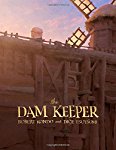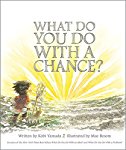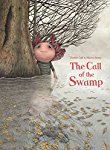Here is southern Oregon it has not been a very wintery winter. In fact, our ski mountain has not been able to open, and just yesterday I did not have to wear any kind of jacket when I went running. Meanwhile our friends in many other parts of the country and in Europe have been hammered by heavy snow falls, ice storms, and freezing temperatures.
Needing a winter fix I chose to read today's wonderful picture book. On the pages you will meet two sisters who are very different in many ways, but who are also very alike. It is fascinating to see what each little girl chooses to do on a snowy day.
 Snow Sisters! Two Sisters, One Snowy Day
Snow Sisters! Two Sisters, One Snowy Day
Needing a winter fix I chose to read today's wonderful picture book. On the pages you will meet two sisters who are very different in many ways, but who are also very alike. It is fascinating to see what each little girl chooses to do on a snowy day.
 Snow Sisters! Two Sisters, One Snowy Day
Snow Sisters! Two Sisters, One Snowy Day
Kerri Kokias
Illustrated by Teagan White
Picture Book
For ages 4 to 6
Random House, 2017, 978-1-101-93883-6
One morning two sisters wake up and they discover that it
has snowed overnight. One sister, a pretty little redhead who is still clad in
her nightgown, opens the front door to look at the snow covered garden with
delight. The brown haired sister takes in the view from indoors. She is not as
pleased by what she is seeing through the window.
Happily the
little redhead gets decked out in her outdoor clothes, while her sister gets
cozy on a big chair with a blanket, a pile of books, and a mug of hot cocoa.
While her sister is building a fort and throwing snowballs outside, the brown
haired sibling bakes cookies and makes paper snowflakes. Then she plays with
her toys and looks at the wild animals from her snug place on the window seat. All
the while her boisterous sister is having a wonderful time outdoors “Tracking”
and “Hiding.”
Finally the little
redhead has had enough. She is cold and wet and she is ready to come inside to
warm up. Her brown haired sister is now ready to take her turn outside. With smiles
on their faces, the siblings greet each other as one comes inside and the other
goes outside.
Now it is the
redhead’s turn to bake and make, to enjoy books, blankets and a cup of cocoa;
and it is the brown haired sister’s turn to build a snow fort and throw snowballs.
Children are
going to love this beautiful seasonal book. It is interesting to see how
different the two sisters in this story are. They technically do the same
things (though they do them at different times), and yet the way in which they
do these things is so different.
With minimal
text – just a few words on every page – the author of this little narrative
gives readers a charming picture of a snowy day.







